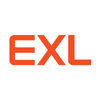Senior Executive Finance & Accounts
10+ Senior Executive Finance & Accounts Interview Questions and Answers

Asked in Wipro

Q. How is accounting done in IND AS 102 share-based payments?
Accounting for share-based payments under Ind AS 102
Determine the fair value of the share-based payment
Recognize the fair value as an expense over the vesting period
Create a liability for the fair value of the share-based payment
Disclose the details of the share-based payment in the financial statements
Asked in Metalbook

Q. What are the key controls you would implement in supply chain finance functions?
Implementing key controls in supply chain finance ensures efficiency, compliance, and risk management throughout the process.
Establish a robust vendor selection process to assess financial stability and reliability, reducing the risk of supply chain disruptions.
Implement regular audits of financial transactions to ensure accuracy and compliance with accounting standards, such as GAAP or IFRS.
Utilize technology for real-time tracking of inventory and financial metrics, enablin...read more

Asked in Wipro

Q. What is the difference between Ind AS 116 and AS 16?
Ind AS 116 is the Indian version of IFRS 16, while AS 16 is the old Indian accounting standard for leases.
Ind AS 116 is effective from April 1, 2019, while AS 16 was effective from April 1, 2001.
Ind AS 116 requires lessees to recognize most leases on their balance sheet, while AS 16 only required finance leases to be recognized on the balance sheet.
Ind AS 116 eliminates the distinction between operating and finance leases for lessees, while AS 16 maintained this distinction.
I...read more
Asked in Metalbook

Q. How would you approach a situation where a supplier is experiencing financial difficulties?
Addressing a supplier's financial difficulties requires strategic communication, support, and potential restructuring of terms.
Initiate open communication to understand the supplier's challenges and assess their situation.
Evaluate the impact on our supply chain and identify critical areas that may be affected.
Consider offering flexible payment terms or temporary financial support to help them stabilize.
Explore alternative suppliers as a contingency plan while maintaining a re...read more

Asked in Amara Raja Infra

Q. What are the TDS rates and GST applicability for subcontractors?
Subcontractor TDS rates vary based on the nature of work and GST is applicable on the total value of the contract.
Subcontractor TDS rates range from 1% to 10% depending on the type of work and the payment threshold.
GST is applicable on the total value of the contract, including the amount paid to the subcontractor.
If the subcontractor is registered under GST, the contractor can claim input tax credit on the GST paid to the subcontractor.
If the subcontractor is not registered ...read more

Asked in Adaequare

Q. Describe your knowledge of statutory requirements in accounting and the process of posting entries in the books of accounts.
Understanding statutory knowledge in accounts is crucial for accurate financial reporting and compliance.
Statutory knowledge includes understanding laws like the Companies Act, Income Tax Act, and GST regulations.
Posting entries involves recording transactions in journals and ledgers, ensuring accuracy and compliance.
Example: Recording a sale involves debiting cash or accounts receivable and crediting sales revenue.
Regular audits ensure compliance with statutory requirements ...read more
Senior Executive Finance & Accounts Jobs




Asked in qBotica

Q. Are you willing to adapt to new modules and learn how to use them effectively?
I embrace new modules with enthusiasm, leveraging them to enhance efficiency and drive strategic financial decisions.
Continuous Learning: I regularly participate in training sessions to stay updated on new financial software and tools.
Practical Application: For instance, I implemented a new ERP system that streamlined our reporting process, reducing time spent by 30%.
Feedback Loop: I encourage team feedback on new modules to identify challenges and optimize usage.
Cross-Depart...read more

Asked in Jain Irrigation Systems

Q. What is the difference between Interstate and IntraState Sales?
Interstate sales are between two different states while intrastate sales are within the same state.
Interstate sales involve movement of goods across state borders while intrastate sales do not.
Interstate sales are subject to Central Sales Tax (CST) while intrastate sales are subject to State VAT.
Interstate sales require additional documentation such as Form C while intrastate sales do not.
Example of interstate sale: A company in Delhi selling goods to a customer in Mumbai. Ex...read more
Share interview questions and help millions of jobseekers 🌟

Asked in Ravi Bindra & Associates

Q. How do you determine the taxability of payments made to a Non-Resident?
Taxability of payments made to non-residents depends on the nature of payment and the provisions of Double Taxation Avoidance Agreement (DTAA).
The taxability of payments made to non-residents is determined by the provisions of the Income Tax Act, 1961 and the DTAA.
Payments made to non-residents are subject to withholding tax at the applicable rate.
The nature of payment determines the rate of withholding tax.
If the DTAA provides for a lower rate of withholding tax, then the lo...read more

Asked in Wipro

Q. What is the difference between fair value and intrinsic value?
Fair value is the estimated worth of an asset or liability, while intrinsic value is the true underlying value of an asset or liability.
Fair value is determined based on market prices or valuation techniques, while intrinsic value is calculated based on fundamental analysis.
Fair value is used for financial reporting and accounting purposes, while intrinsic value is used for investment decision-making.
Fair value can fluctuate over time due to market conditions, while intrinsic...read more
Asked in Aperam

Q. What is the concept of costing?
Costing is the process of determining the costs associated with producing goods or services, essential for pricing and profitability analysis.
Costing helps businesses understand the total expenses involved in production, including materials, labor, and overhead.
It aids in setting prices by providing insights into the minimum price needed to cover costs and achieve profit.
Different costing methods exist, such as job costing (used in custom orders) and process costing (used in ...read more

Asked in Wipro

Q. Tell me the 5 steps of Ind AS 115.
Ind AS 115 is a revenue recognition standard that outlines a single comprehensive model for entities to use in accounting for revenue arising from contracts with customers.
Identify the contract with the customer
Identify the performance obligations in the contract
Determine the transaction price
Allocate the transaction price to the performance obligations
Recognize revenue when (or as) the entity satisfies a performance obligation

Asked in Amara Raja Infra

Q. What checks do you perform during the bill process?
Bill process checks ensure accuracy and compliance in financial transactions, preventing errors and fraud.
Verification of invoice details against purchase orders and contracts.
Approval workflows to ensure multiple levels of review before payment.
Use of automated systems to flag discrepancies or unusual patterns.
Regular audits to assess compliance with financial policies.
Example: Cross-checking vendor invoices with delivery receipts.
Asked in Zita Telecom

Q. What is the notice period?
Notice period is the duration an employee has to serve after resigning from their job.
It is a period of time between the resignation date and the last working day of the employee.
It is usually mentioned in the employment contract.
The notice period can vary from company to company and can range from a few weeks to several months.
During the notice period, the employee is expected to complete any pending work and handover their responsibilities to their successor.
The notice peri...read more

Asked in Genpact

Q. What is your current CTC?
Current CTC refers to the total amount of money an employee is receiving from their employer as salary and benefits.
Current CTC includes salary, bonuses, incentives, allowances, and other monetary benefits.
It does not include non-monetary benefits like insurance, company car, or housing.
For example, if an employee's salary is $50,000 per year and they receive a $5,000 bonus, their current CTC would be $55,000.

Asked in KPMG India

Q. What is your reason for switching jobs?
Seeking new challenges and growth opportunities in a larger organization.
Desire for career advancement
Opportunity to work with a larger team
Seeking new challenges and learning opportunities

Asked in Senco Gold

Q. Tell me about yourself.
Experienced finance executive with a strong background in strategic planning, financial analysis, and team leadership.
Over 15 years of experience in finance and accounting roles across various industries.
Led a team of 10 finance professionals to streamline budgeting processes, resulting in a 20% reduction in time spent on financial reporting.
Implemented a new financial forecasting model that improved accuracy by 30%, aiding in better decision-making.
Successfully managed a $50...read more
Interview Questions of Similar Designations
Interview Experiences of Popular Companies








Reviews
Interviews
Salaries
Users

















